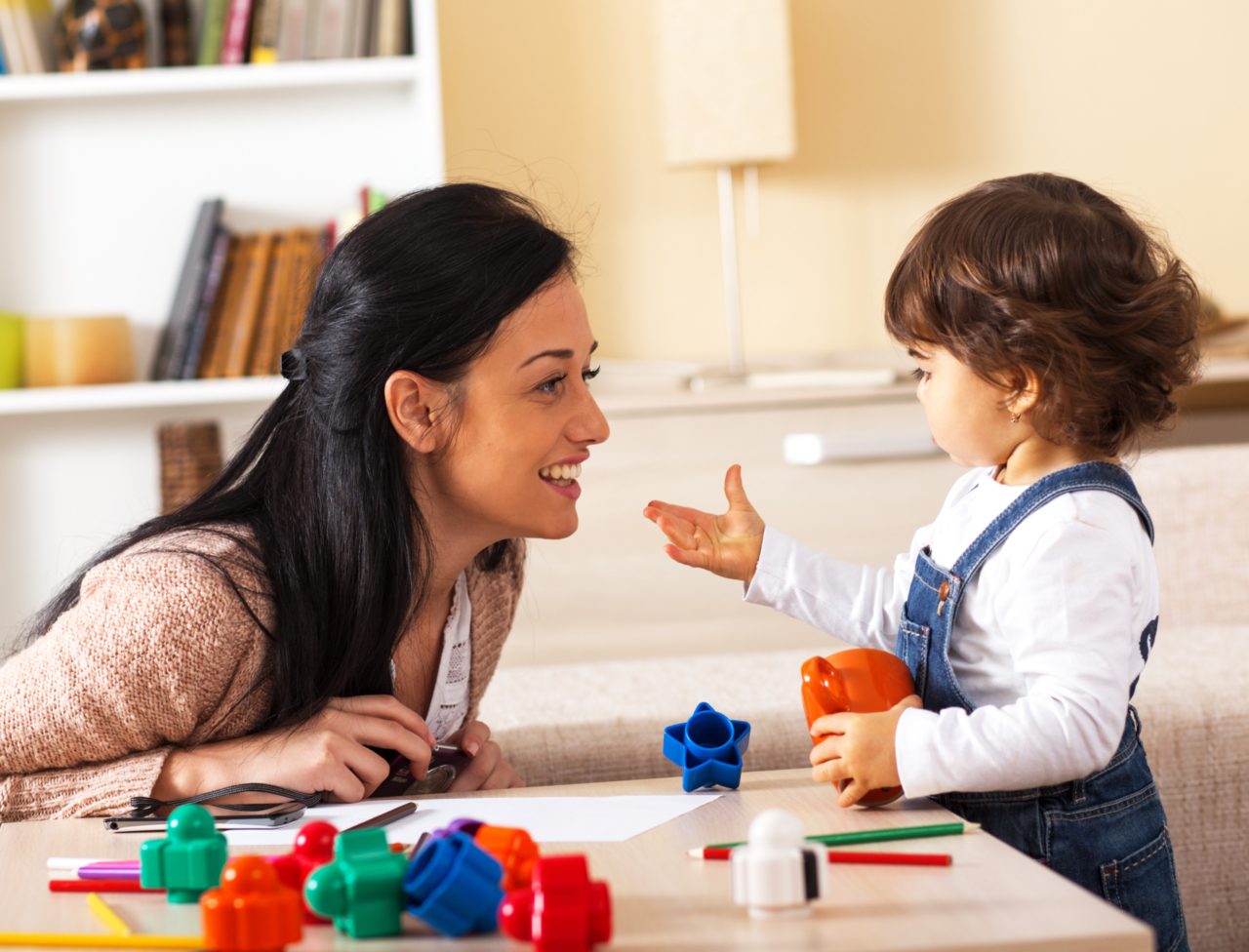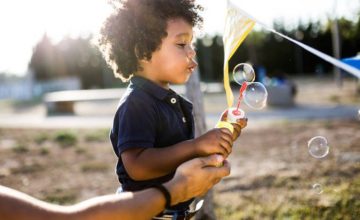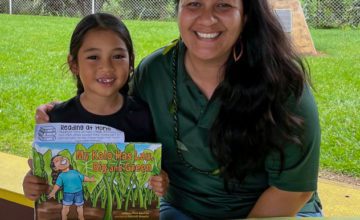Infants and toddlers are natural scientists—we hear that a lot, but what does it really mean?
Most every experience—whether during play or through daily routines—involves some element of exploration and testing. Think of how young children make observations, either consciously or unconsciously, as they discover: The pea goes flat if I smush it with my finger. They form a hypothesis and conduct tests: Do the steamed carrots go flat if I press down on them? How about the bread? What does yogurt do if I push down hard on it? They analyze the findings, learn from their tests, and apply that knowledge to new situations—new foods, play dough, sand, water, mudpies, and more.
What is science? Science is both a body of knowledge that represents our current understanding of natural systems and the process by which that body of knowledge has been established (Duschl, Schweingruber, & Shouse, 2007, p. 26). For infants and toddlers, science is all about exploration and discovery—which we call scientific inquiry, best thought of as a “way of thinking and acting” (Worth, 2010).
Science play and exploration provides the opportunity for children to develop a range of skills across all domains of development, including aspects of scientific inquiry including:
- observing,
- asking questions,
- describing,
- predicting,
- providing explanations,
- using tools and instruments to extend the senses and improve observations, and
- engaging in “what if” investigations (Hamlin & Wisneski, 2012).
How can you support science learning? During everyday interactions, you might:
-
- Ask what children discovered: You look surprised. What did you learn/see/do/find?
- Ask a “what” question (for children 18 months to 3½ years old): What do you think the ants are doing there?
- Ask a “why” or “how” question (children 3½ and up): How do you think the refrigerator stays so cold?
- Make an observation: I see the leaves on the maple tree are starting to turn red around the edges.
- Make an “I wonder…” statement: I wonder why our sunflower seeds didn’t grow. Or, I wonder what would happen if we built the base of the tower with the rectangle blocks, instead of the small cubes?
- Suggest an addition or modification: Would you like to add some dye to the water? Or, We could change the height of the ramp. Would you like to try that?
- Suggest a re-test: I see you making shadows with the toy car and the flashlight. What might happen if you stand very close to the car and shine the light? What about if you stand very far away?
- Suggest engaging a partner: Would you like to ask Dante if he could wait at the bottom while you use the pulley to send the basket down?
- Provide modeling to scaffold discovery: I’m going to gently poke my finger in the dirt right up to here so I know how deep to put the seed in the soil.
- Offer a new material or tool to support exploration: Would you like to use a magnifying glass to see the orange slice very close up? Or, We’ve had sand in our sensory bin for a few weeks, but today we have something new: Dried corn.
- Model and teach scientific language and vocabulary: Do you see the gray sky and dark clouds? I predict that it will rain today. Or, You’re right—it does look like a sleeping bag. We call it a chrysalis.
- Extend your own learning to deepen the children’s. Adults needn’t be scientists in order to support science learning, but it is important that adults understand the processes that children are discovering so they can provide simple, age-appropriate explanations. Why are the leaves changing color? Where do squirrels sleep?
Early childhood professionals can also use provocations—intentionally chosen objects designed to deepen or extend children’s learning—to foster observation, exploration, and other science skills. Imagine a basket of fabrics with different textures in an infant setting, or a magnifying glass and a line of shells placed on a table for toddlers to discover as they arrive. Letting children take the lead in discovering, while adults provide language and scaffolding, supports the growth of knowledge.
Provocations can be a powerful way to follow children’s lead, and give them the opportunity to explore their interests in meaningful ways. This is truly emergent curriculum in action. Perhaps children enjoy collecting seeds, pinecones, and leaves outside. Providing a selection of these materials, plus salt-dough, allows children to make three-dimensional sculptures of natural materials. Or offering a bucket of water (carefully supervised) encourages an exploration into which seeds, leaves, and pinecones sink and which float.
Even without adults’ planning, babies and toddlers will create their own problems to solve! One toddler may decide he wants to see how high he can build a block tower. A baby may work to try different ways of turning, pushing, banging or tapping on the door of a pop-up toy to make it open. Internal motivation and curiosity is what drives discovery. Children come to us with a passion to explore, ask questions, wonder, and experiment. Our job is to notice it, nurture it, and give it space to grow.
References
Duschl, R. A., Schweingruber, H. A., & Shouse, A. W. (Eds.). (2007). Taking science to school: Learning and teaching science in grades K-8. Washington, DC: National Academies Press.
Hamlin, M. & Wisneski, D. B. (2012). Supporting the scientific thinking and inquiry of toddlers and preschoolers through play, Young Children, 67(3), 82–88.
Worth, K. (2010). Science in early childhood classrooms: Content and process. Newton, Massachusetts: Education Development Center, Inc. Retrieved from http://ecrp.illinois.edu/beyond/seed/worth.html





